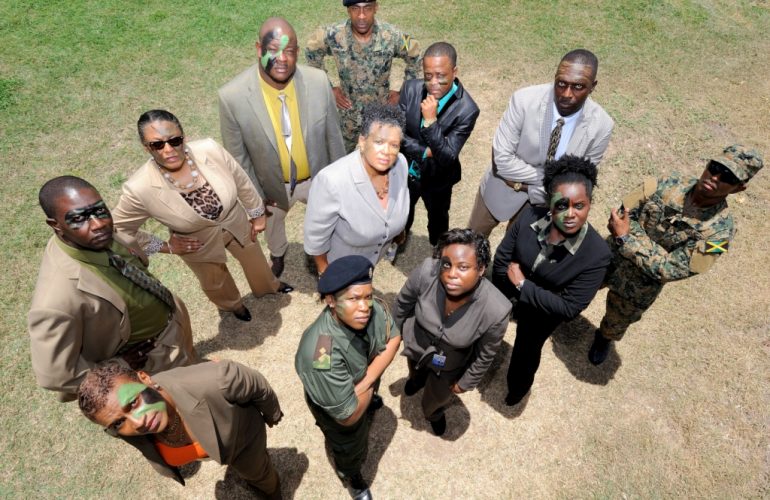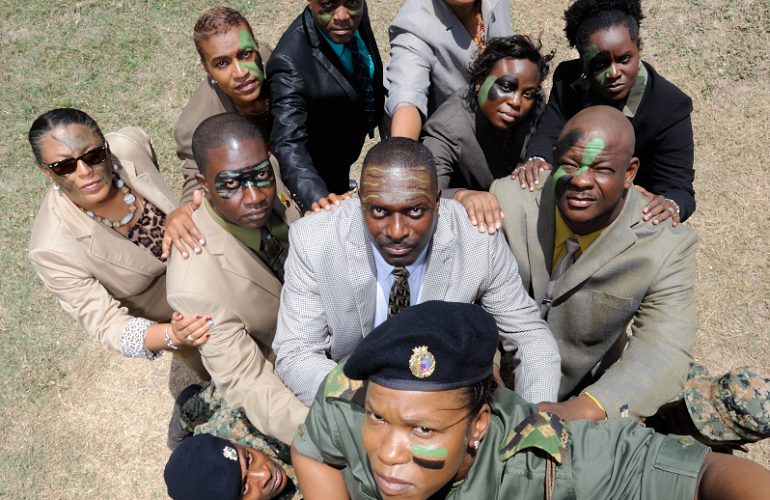THE positive relationship between literacy and reduced violence seems almost crystal clear when one observes the impact of the Learning Net Works (LNW) project of the “think-and-do” tank, Violence Prevention Alliance (VPA), and the Ministry of Health.
The project was launched in 2010 with vital support from the JN Foundation, which provided computers and funding to purchase the licence for the literacy software, AutoSkills. The devices were distributed to several inner-city communities and have changed the lives of young people, some of whom initially struggled to identify letters, but are now pursuing tertiary education.
Not all the students make it, VPA Executive Director Dr Elizabeth Ward admitted. However, she said most who have grasped the content of the software, display improved social skills, and are often less prone to violence than their peers.
“It seems they become a lot calmer, and this what I am really interested in,” the researcher said.
Dr Ward and her team established the LNW project against the background of the country’s continuously harsh social climate, made chronic by increasing crime and violence.
The records indicate that, with some 41 murders per 100,000 people, Jamaica has the fifth highest rate of murders in the world, falling behind Belize, which has the highest murder rate in the Caribbean Community, the expert pointed out. And it has been determined, she said, that many of Jamaica’s problems are rooted in lack of education.
“When you examine cohorts of students going through the educational system, by the time they reach grade nine, 27 per cent of them have dropped out,” said Dr Ward. “It is assumed that a lot of them have migrated, or have moved to another school, however, we know that many of them are on the street corners smoking,”
“More than 51 per cent of youngsters who were enrolled in high school did not sit or pass exams,” she continued, highlighting Ministry of Education data. “And the problem is more acute in western Jamaica, now faced with high levels of violence, where recent data indicates that the dropout rate is higher than in the Kingston Metropolitan Region.
“Western Jamaica has double the rate of high school drop- outs. Financial issues are high on the list as one of the contributory factors, but boredom in school is also high,” Dr Ward revealed. “Students are simply bored with the school curriculum, and it’s not meeting their needs.”
Conscious of this data, the epidemiologist and her team approached faith-based organisations and community centres to establish a series of facilities that would be positioned as learning centres to assist young people to improve themselves.
“We got the computers and Jamaica National donated the software,” said Dr Ward, as she chronicled the genesis of the project, which currently spans 10 facilities serving more than 20 inner-city communities in the Corporate Area, and the Source Resource sentre in Savanna-la-Mar, Westmoreland.
The project started with two learning centres at the Healthy Ones Lifestyle Youth (HOLY) Network on Barry Street in downtown Kingston; and in Rose Town, an inner- city community in south St Andrew.
“I’ve used the AutoSkills programme to take persons from zero up, and those same persons I’ve been able to sit and pass the HEART/NTA entry exam,” explained Rev Daval James Bell, who operates the HOLY Network, a facility which offers a variety of programmes for at-risk youth, ages 13 to 19 years old primarily, but extends to those 20 – 29 who are parents in Kingston’s inner cities.
Marvin and Dominic, are among some of the youngsters, who have emerged successfully after teaching themselves to read using the AutoSkills programme at the HOLY Network Centre. The two, who are children of well-known community dons, entered the facility as barely literate teens at age 14, but moved on to pursue tertiary education at a technical institute.
“Marvin joined us straight from the streets; and Dominic came from school, where he was about to be expelled,” Rev Bell recalled.
As the youngsters learned to read using the AutoSkills programme, Rev Bell also assisted them to pursue subjects at the Caribbean Secondary Education Certificate (CSEC) level, with the help of the Citizens Security and Justice Programme (CSJP), which included mathematics and English Language. Then to a technical tertiary institution where they completed courses at The University of the West Indies School of Continuing Studies. Marvin graduated last year and is permanently employed to a regional petroleum company. However, both young men continue to work with the HOLY Network, mentoring other young people who have challenges similar to theirs.
“It’s a great programme,” Rev Bell underscored, commenting on the practicality of the AutoSkills programme, a core component of the Learning Net Works programme.
“AutoSkills is about playing games or solving puzzles. However, one is really learning to read and write and grasp mathematics. Because it is fun and it’s on the computer, you don’t immediately realise that you are learning to type, use a mouse, and grasp concepts,” Bell explained.
The programme promotes students through stages, first diagnosing their literacy levels, and then moving them along as they master each stage.
“The programme is rewards-based. It’s focused on whatever you do right and not what you do wrong,” Dr Ward explains. “And then there is no punitive teacher. The students work on their own until they master it,” Dr Ward said, explaining that the adolescent brain is rewards-driven and punishment-averse.
The knowledge the students gain is complemented by personal development initiatives to develop their social skills at HOLY Network which focuses on their individual holistic need.
“It’s not always so straight- forward,” Rev Bell, however, cautioned. “You give them an education, but there are some personal skills you have to develop,” he added, pointing to the need to also develop their social and life skills.
“It helped me to build up my self-confidence,” commented 22-year-old Nadia Burke of Denham Town who joined the HOLY Network at age 13, after being expelled from high school in 2008. The teenage mother, who says she could recognise very few words when she entered the programme, improved her literacy using the AutoSkills software.
As a result, she was able to sit three subjects at the CSEC level, which she passed with distinctions and credit; and those qualifications later allowed her to enroll in the HEART Trust/NTA programme to study hospitality.
Burke continues to work as a mentor and office manager at HOLY Network, while pursuing additional CSEC qualifications.
“Autoskills along with the HOLY Network helped me so that I can be there for other kids; therefore, I advise them that they don’t have to follow company. They can be better,” Burke said.
See original article here!







